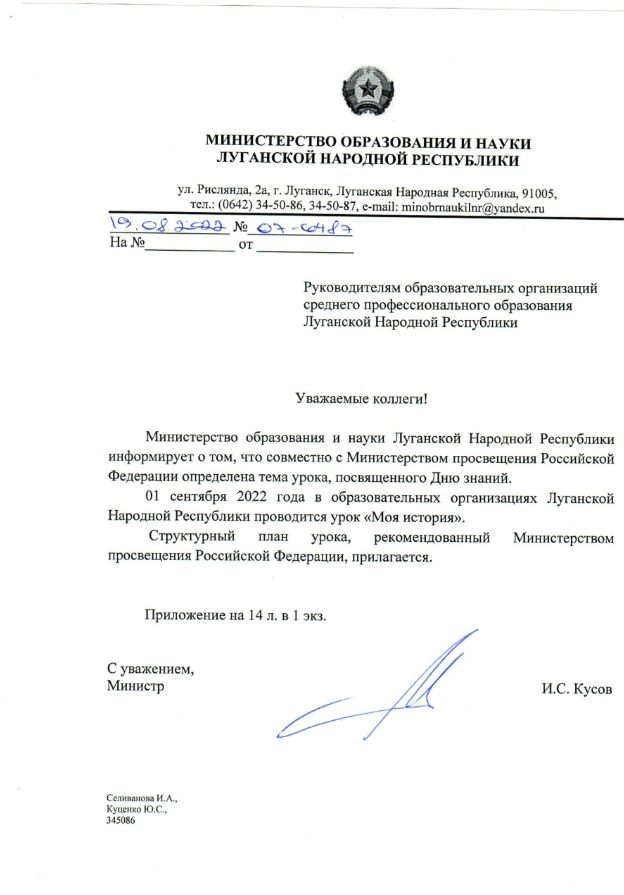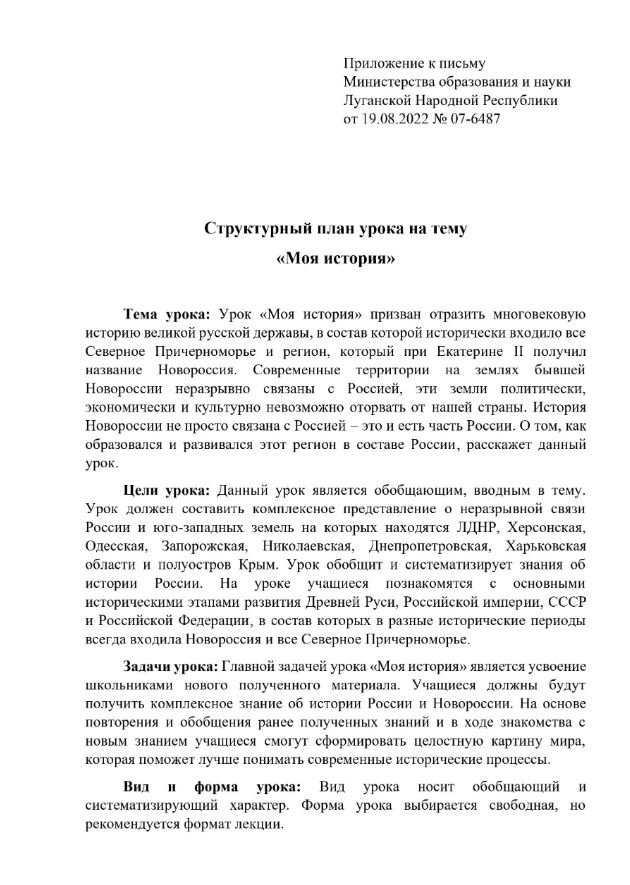"Baptism of Kyivan Rus took place in Chersonesus": Russian occupation authorities prepare a pseudo-historical guide for 1 September

MAZURENKO ALONA – SUNDAY, 28 AUGUST 2022, 13:49
Russian occupation authorities and collaborators in temporarily occupied Luhansk Oblast have prepared a pseudo-historical guideline for the new school year starting on 1 September. In that guideline, they claim that Prince Volodymyr baptised Kyivan Rus in Chersonesus [an ancient Greek colony near present-day Sevastopol - ed.], and that Moscow is allegedly older than Kyiv.
Source: Ukrainian Chief Intelligence Directorate
Details: Ukrainian intelligence notes that most of the quotes from the Russian guide contradict both historical fact and common sense.
Quote from the Russian guide: "The West, which feels like the world's geopolitical periphery, seeks to undermine the unity and stability of the ‘Heartland’ - Russia, more than 80% of its citizens belong to one of three groups of Eastern Slavs: these are Russians (Velykorosy or Great Russians), Ukrainians (Malorosy or Little Russians) and Belarusians. These people are the heirs of the Ancient Rus, baptised in Khersones by Prince Volodymyr."
For reference: The baptism of Kyivan Rus [referred to in the guide as "Ancient Rus" - ed.] took place in Kyiv. Prince Volodymyr himself was baptised in Chersonesus.


Quote from the Russian guide: "Ancient Rus, the Russian Empire and modern Russia were destined to become the heir of the great Byzantium, which was once the centre of the entire civilised world, had the greatest culture and a deep religious tradition.
The centres of early Russian statehood arose: the northern one - in Old Ladoga and the future Novgorod, and later the southern one - in the future Kyiv."
For Reference: Both Russian cities are younger than Kyiv.
Quotes from the Russian guide: "Hrushevskyi began to construct a Ukrainian historical myth revolving around Halychyna (Galicia), and to publish a Ukrainian-language newspaper for each issue of which he invented several new ‘Ukrainian’ words."
"The Bolsheviks decided to create their own Ukraine, but in a communist way. This is how ‘Ukraine named after Vladimir Ilyich Lenin’ was born... The Ukrainian language was imposed on people by force."
For reference: Soviet authorities continued the policies of the Russian Empire, purposefully narrowing the use of the Ukrainian language.
Quote from the Russian guide:
"There were many who considered themselves Ukrainian for career reasons – for example, Leonid Ilyich Brezhnev, Secretary General of the Central Committee of the CPSU, the long-term head of the USSR, was considered as ‘Velykoros’ in the questionnaires of the 1920s, and ‘Ukrainian’ in the questionnaires of the 1930s-1950s."
For Reference:
The only nationality that contributed to career growth in the Soviet Union was Russian.
Quotes from the Russian guide:
"Post-war Soviet Ukraine was quietly engrossed in this evil, which was inflated by foreign propaganda, in which the Banderites (Russian propaganda uses this word as a pejorative for nationally conscious Ukrainians) who settled in Canada were especially refined…"
"The transformation of Ukraine into ‘anti-Russia’ was carried out by Ukrainian authorities under direct pressure from the USA, the EU and NATO."
Details:
Russian occupiers claim that they are "liberating their lands from the terror of Banderites."
The Ukrainian Chief Intelligence Directorate believes that one of the first tasks after the restoration of legitimate Ukrainian power in the temporarily occupied lands will be the establishment of a civilised system of secondary and higher education.
Journalists fight on their own frontline. Support Ukrainska Pravda!